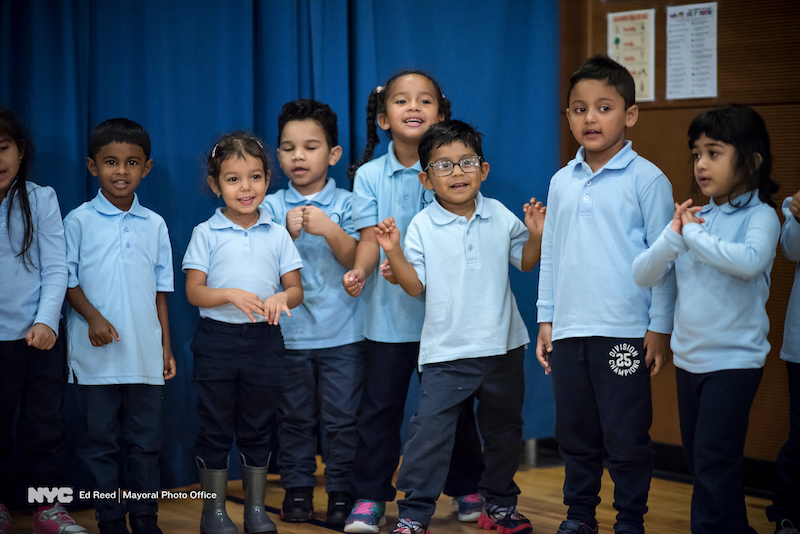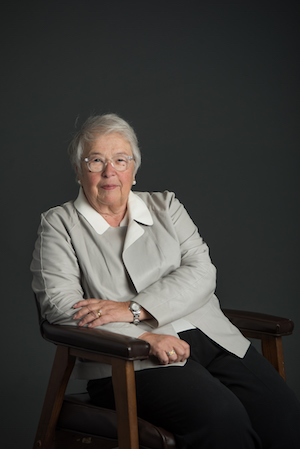

When it comes to our children’s education, the sooner we start the better. An extra year of education can change the course of a young life. Children absorb a great deal of information in the first several years of their lives – they’re like sponges, soaking up all the words they hear, the interactions they have, and the many things they see. The learning they do in their earliest years is the building block for success in school and in life. If we don’t reach them when they’re three and four years old, we’ve missed the opportunity to support the development of important skills, particularly the ability to learn a second language. We’ve also missed an opportunity to bring families into the classroom.
That’s why New York City has built Pre-K for All – providing free, full-day high quality pre-K for every four-year-old. That means nearly 70,000 four-year-olds are getting that critical foundation – like learning 1,000 new words, experiencing how to interact and play well with others, and getting ready for kindergarten. Now, we’re expanding our investment in early learning through 3-K for All, which will bring free, full-day education to every three-year-old in the City.
Every time I visit an elementary school across the City I ask to see the pre-K classrooms. I see children working in centers around the classroom, doing art and science projects and even practicing a second language.
This year, there are 30 Dual Language Pre-K programs, setting some of our City’s youngest learners on the path to success in a multilingual, multicultural world. I’m thrilled that next year, we are doubling that number to 63 programs that will be available in Spanish, Bengali, Chinese, Russian, and Italian this fall across all five boroughs.
In a Dual Language classroom, half of the students in the classroom speak the language the class is learning, and half are English-proficient. Students receive instruction in English and a second language with the goal of becoming bilingual and biliterate. Dual Language classes foster a learning environment that encourages sharing of vocabulary, cultures and traditions.
Being able to speak and read in a different language – and understand a different culture, too – is a game-changer for our students and families. As a first-generation American who started school without speaking English, I know firsthand the struggles many of our English Language Learners face when they first step foot in a classroom. But they pale in comparison to the many benefits that growing up bilingual brought me, and continue to bring me as an educator, mother and grandmother, and especially as a leader. In a global City and a global society, our next generation of leaders – in business and in our government – will need to know and understand more than just one language and culture.
Dual Language education also brings parents into the classroom. Each month, families come together to learn what is happening in school and share ideas of how they can better support their child at home. Pre-K also has given tens of thousands of parents the opportunity to go back to work while saving money that would have been spent on child care. This is a win-win for students and families.
As I visit schools across the City, I often hear from families asking for new Dual Language programs, including in pre-K. By doubling our Dual Language Pre-K programs, more families will see the benefits of Dual Language sooner in their child’s academic career than ever before. And our children will get that critical early education foundation in two languages, rather than just one.
Expanding Pre-K Dual Language education is an important part of the work we’re doing across New York City schools – embracing the diversity of our students and families, making the right investments in early childhood education, and preparing our students for success in college and careers. Now, more of our City’s future leaders than ever before will get a head start on becoming global citizens.
(The author is the New York City Schools Chancellor)





Be the first to comment